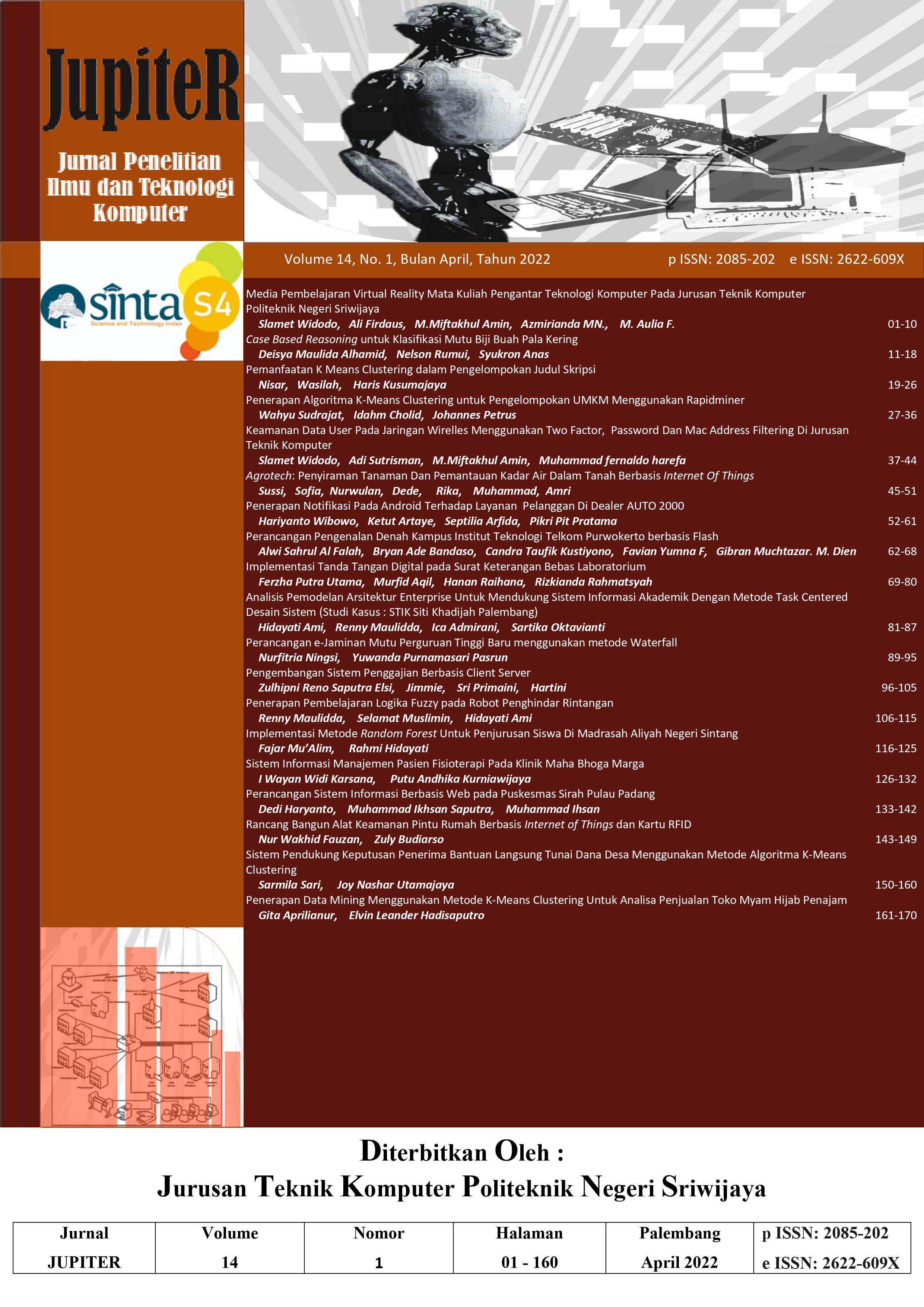Penerapan Algoritma K-Means Clustering untuk Pengelompokan UMKM Menggunakan Rapidminer
DOI:
https://doi.org/10.5281./4467/5.jupiter.2022.04Abstract
SMEs assistance appropriately is expected to improve the quality of SMEs, however, to provide proper assistance to each SMEs requires identification and grouping of SMEs businesses. The grouping of businesses in Indonesia is divided into three groups, namely Micro, Small and Medium, where each group is based on turnover and assets. The purpose of this research is to group SMEs in districts in South Sumatra by applying the K-Means Clustering algorithm. The stages of the research carried out include the business understanding phase, the data understanding phase, the data processing phase, the Modeling Phase, the evaluation phase and the desimination phase. In testing 15 business data, this study succeeded in applying the K-Means Clustering algorithm to identify and classify SMEs with test results of 53% of data to cluster 1 of 8 data, 40% of data to cluster 2 of 6 data and 7% of data to cluster 3 as much as 1 data. The results of this calculation have also been tested using rapidminer software and produce the same data.







